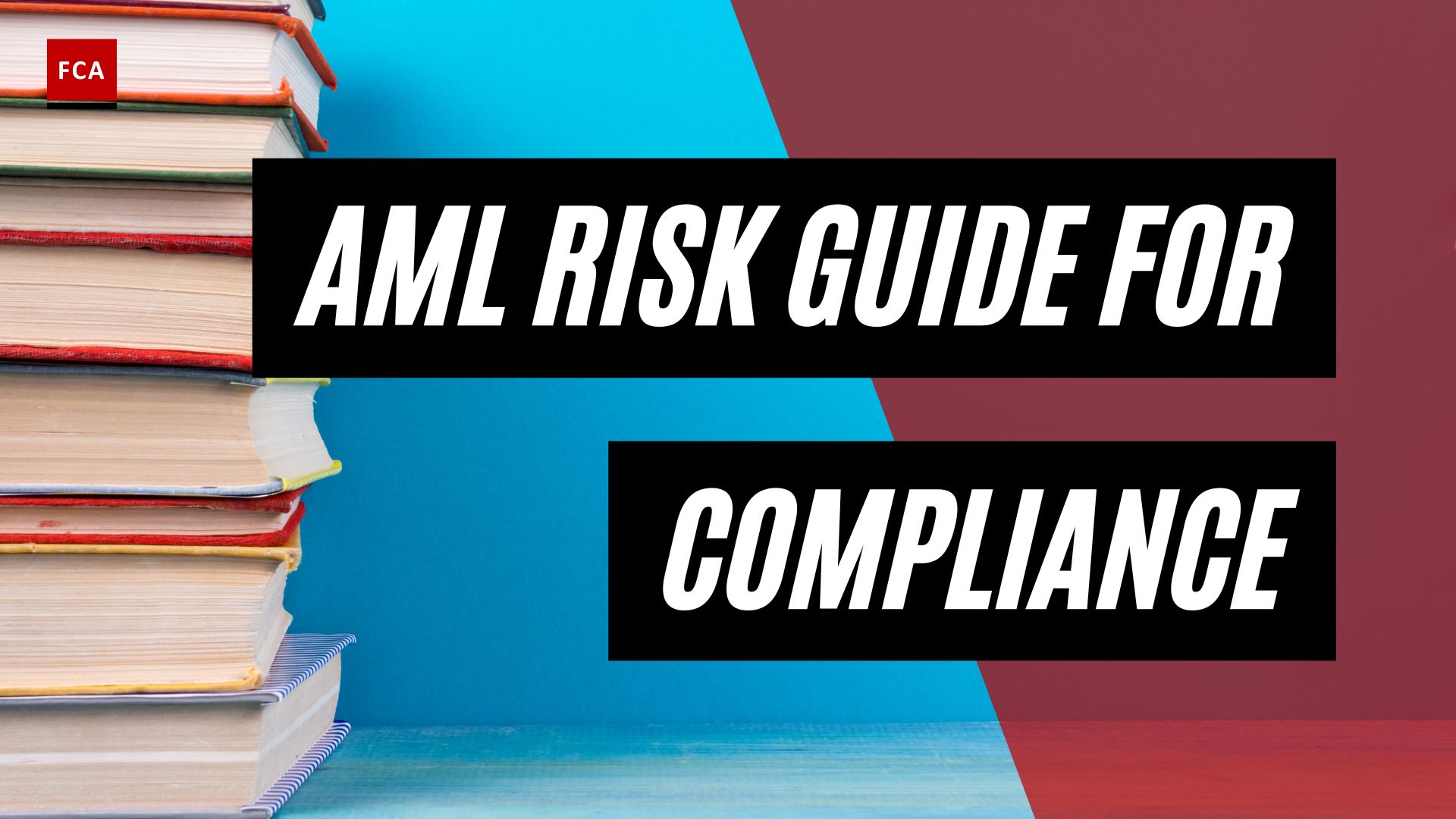Introduction to AML in Retail and E-Commerce
As e-commerce continues to expand, so does the importance of implementing effective Anti-Money Laundering (AML) measures. AML screening for e-commerce transactions is a critical and mandatory requirement to prevent terrorist financing, money laundering, and other financial crimes. It ensures compliance with financial regulations and protects businesses from legal ramifications and reputational damage (Financial Crime Academy).
Understanding AML in E-Commerce
AML screening involves the process of identifying and verifying customers, conducting due diligence, and monitoring transactions for suspicious activities in order to prevent money laundering and terrorist financing. For e-commerce businesses, this screening becomes especially crucial due to the high frequency of online financial activities. In fact, global e-commerce sales are projected to reach a staggering $5.4 trillion by 2022.
To comply with AML regulations, online businesses are required to establish robust AML programs. These programs include the implementation of various measures such as customer identification and verification, transaction monitoring, and reporting of suspicious activities. By adhering to these regulations, e-commerce businesses play a vital role in safeguarding the integrity of the financial system and preventing illicit activities (Financial Crime Academy).
Importance of AML Compliance in the Retail Sector
The retail sector, including e-commerce, is a prime target for money laundering and other financial crimes. Criminals exploit the high volume and anonymity of online transactions, making it imperative for retail businesses to prioritize AML compliance. By implementing effective AML measures, businesses not only fulfill their legal obligations but also mitigate the risks associated with money laundering, terrorist financing, and reputational damage.
To ensure AML compliance in the retail sector, businesses must establish proper customer due diligence processes, implement robust transaction monitoring systems, and provide regular training to employees. Adhering to AML regulations not only protects businesses from legal penalties but also helps maintain the trust and confidence of customers and financial institutions.
In the next sections, we will delve deeper into the regulatory landscape for AML in e-commerce, the challenges and risks associated with AML screening for e-commerce transactions, as well as the technologies and tools available to enhance AML screening practices. Stay tuned to learn more about how to fortify your e-commerce arsenal with effective AML screening measures.
Regulatory Landscape for AML in E-Commerce
To combat money laundering, terrorist financing, and other financial crimes in the online marketplace, regulatory bodies worldwide are ramping up efforts to ensure that e-commerce platforms implement robust Anti-Money Laundering (AML) compliance programs. Failure to comply with these regulations can result in hefty fines and legal repercussions for non-compliant organizations.
Global AML Regulations for E-Commerce
The Financial Action Task Force (FATF), an intergovernmental organization, sets international standards for AML screenings. Countries around the world are expected to implement these standards to combat money laundering effectively. Additionally, various national and regional regulations exist to address AML concerns specific to e-commerce.
In the United States, for example, regulations such as the Bank Secrecy Act (BSA) and the USA PATRIOT Act require online businesses to implement robust AML programs to combat money laundering, terrorist financing, and other financial crimes (Financial Crime Academy). Similarly, other countries have established their own regulations to address AML risks associated with e-commerce transactions.
It is essential for e-commerce businesses to stay informed about these regulations and ensure compliance to avoid legal consequences. Implementing effective AML measures not only helps protect the integrity of the financial system but also safeguards businesses from potential reputational damage and loss of trust.
Role of Regulatory Bodies in AML Compliance
Regulatory authorities across the globe have been increasingly focusing on enhancing AML regulations and enforcement in e-commerce. These authorities aim to ensure that financial institutions and e-commerce companies establish and maintain robust AML compliance programs to mitigate money laundering risks (Financial Crime Academy).
Regulatory bodies play a crucial role in setting and enforcing AML regulations. They provide guidance, establish reporting requirements, conduct inspections, and impose penalties for non-compliance. By monitoring the compliance of e-commerce platforms, regulatory bodies contribute to the overall integrity of the financial system.
To foster effective AML compliance in the e-commerce sector, collaboration and information sharing among AML compliance professionals, financial institutions, and e-commerce platforms are crucial. This collaborative approach allows for the development of comprehensive strategies that address the evolving risks in the digital financial ecosystem (Financial Crime Academy).
By adhering to global AML regulations, e-commerce businesses can contribute to the prevention of money laundering, terrorist financing, and other financial crimes. It is essential for organizations to stay informed about regulatory requirements and work towards establishing robust AML compliance programs to protect themselves and the integrity of the financial system.
Challenges and Risks in AML Screening for E-Commerce Transactions
As e-commerce continues to thrive, so does the need for effective AML screening for e-commerce transactions. However, this endeavor comes with its own set of challenges and risks. In this section, we will explore two key factors that pose challenges to AML screening in the e-commerce sector: the volume and complexity of e-commerce transactions, and the evolving tactics employed by criminals in the digital realm.
Volume and Complexity of E-Commerce Transactions
The growth of the e-commerce industry has been nothing short of remarkable. By 2023, global e-commerce sales are projected to exceed $6.5 trillion, signaling a tremendous increase in transaction volume (Financial Crime Academy). With such a large number of transactions taking place, ensuring effective AML screening becomes increasingly essential.
The sheer volume of e-commerce transactions presents challenges for AML screening processes. Traditional manual methods are simply not scalable or efficient enough to handle the vast amounts of data involved. As a result, e-commerce platforms are turning to technology-driven solutions, such as artificial intelligence (AI) and machine learning algorithms, to analyze and process the data in real-time. These technologies enable the identification of suspicious patterns and behaviors, helping to flag transactions that require further investigation.
Moreover, the complexity of e-commerce transactions adds another layer of challenge. E-commerce platforms often support various payment methods, including credit cards, digital wallets, and cryptocurrencies. Each payment method may have different risk profiles and associated AML considerations. AML screening processes need to adapt to these complexities, ensuring that all payment channels are thoroughly monitored for potential money laundering or other illicit activities.
Evolving Criminal Tactics in the Digital Realm
Criminals are continually adapting their tactics to exploit vulnerabilities in the digital realm. As e-commerce platforms evolve, so do the methods employed by money launderers and financial criminals. This presents a constant challenge for AML screening efforts.
One of the significant risks in the e-commerce sector is the use of digital platforms to disguise illicit funds and transactions. Criminals exploit the anonymity and speed of online transactions to launder money obtained through illegal activities. They may employ various techniques such as layering transactions, using multiple accounts, or utilizing digital currencies to obfuscate the source and destination of funds.
To combat these evolving criminal tactics, AML screening processes must stay ahead of the curve. This involves the continuous enhancement of detection mechanisms and the adoption of advanced technologies. E-commerce platforms need to invest in robust AML software, leverage data analytics, and collaborate with regulatory bodies and industry experts to identify emerging trends and patterns of financial crime in the digital space.
By addressing the challenges posed by the volume and complexity of e-commerce transactions, as well as staying vigilant against evolving criminal tactics, e-commerce platforms can strengthen their AML screening practices. Implementing effective AML measures not only helps protect against financial crime but also promotes trust and confidence in the e-commerce ecosystem.
Technologies and Tools for AML Screening in E-Commerce
To effectively combat financial crime and ensure AML compliance in e-commerce, the use of advanced technologies and tools is essential. Two key technologies that have revolutionized AML screening are artificial intelligence (AI) and machine learning (ML). Additionally, leveraging digital identities and blockchain technology can further enhance the effectiveness of AML screening efforts.
Artificial Intelligence and Machine Learning in AML Screening
Artificial intelligence and machine learning algorithms play a crucial role in AML screening for e-commerce transactions. These technologies have the capability to analyze vast amounts of data in real-time, enabling the detection of suspicious activities that may indicate money laundering or terrorist financing. By automating the analysis process, AI and ML algorithms can significantly enhance the efficiency and accuracy of AML screening.
The use of AI and ML in AML screening allows for the identification of patterns and anomalies that may go unnoticed by traditional rule-based systems. These algorithms continuously learn from data, adapting to new trends and evolving criminal tactics in the digital realm (Tookitaki). By leveraging these technologies, businesses can implement more robust AML compliance programs and improve their ability to identify and prevent illicit financial activities.
Leveraging Digital Identities and Blockchain
In addition to AI and ML, leveraging digital identities and blockchain technology can further enhance AML screening in e-commerce. Digital identities, which encompass various forms of customer data and transaction information, can provide valuable insights for AML screening. By analyzing these digital identities, businesses can better understand customer behavior and identify potential risks associated with specific transactions or individuals. This information can help in the identification of suspicious activities and improve the accuracy of AML screening processes.
Blockchain technology, on the other hand, offers a decentralized and immutable ledger that can enhance the security and transparency of transactions. By leveraging blockchain for AML screening, businesses can create an auditable trail of transactions, making it easier to track and trace funds. This technology can also facilitate secure and efficient sharing of information between different entities involved in AML compliance, enhancing collaboration and reducing duplication of efforts.
By harnessing the power of AI and ML, along with leveraging digital identities and blockchain technology, businesses can strengthen their AML screening capabilities in e-commerce. These technologies enable real-time analysis, identification of patterns, and the detection of suspicious activities, ultimately enhancing the overall security and integrity of financial transactions in the digital realm (Financial Crime Academy). It is important for organizations to stay up-to-date with advancements in these technologies and incorporate them into their AML compliance programs to effectively combat money laundering and protect against financial crimes.
Implementing Effective AML Practices in E-Commerce
To ensure compliance with anti-money laundering (AML) regulations and mitigate the risk of financial crimes, it is essential for e-commerce businesses to implement effective AML practices. Two crucial aspects of AML in e-commerce are customer due diligence (CDD) and transaction monitoring and reporting.
Customer Due Diligence (CDD) in E-Commerce
Customer due diligence is a fundamental component of AML screening for e-commerce transactions. It involves verifying the identities of customers and assessing the risk they pose in terms of potential involvement in money laundering activities. By conducting thorough CDD, e-commerce businesses can better understand their customers, detect suspicious behavior, and prevent illicit transactions.
When implementing CDD in e-commerce, businesses should consider the following:
-
Identity Verification: E-commerce platforms should employ robust identity verification measures to ensure the accuracy and authenticity of customer information. This can include verifying government-issued identification documents, conducting biometric authentication, or utilizing digital identity verification services.
-
Risk Profiling: Assigning risk profiles to customers based on factors such as transaction history, geographic location, and business type can help identify higher-risk customers who require enhanced due diligence. By categorizing customers into risk levels, businesses can allocate resources more effectively and prioritize their AML efforts.
-
Ongoing Monitoring: Regularly monitoring customer behavior and transactions is essential to identify any unusual or suspicious activities. Automated monitoring systems can help flag transactions that deviate from established patterns or exhibit red flags associated with money laundering. Continuous monitoring enables businesses to promptly detect and investigate potentially illicit transactions.
Transaction Monitoring and Reporting
Transaction monitoring is a critical aspect of AML screening in e-commerce. It involves the analysis of transactional data to identify patterns, detect suspicious activities, and ensure regulatory compliance. By monitoring transactions, businesses can identify potentially illicit behavior and report it to the appropriate authorities.
To effectively monitor transactions in e-commerce, businesses should consider the following:
-
Automated Monitoring Systems: Implementing transaction monitoring systems equipped with advanced technologies such as artificial intelligence and machine learning can enhance the efficiency and accuracy of AML screening. These systems can analyze large volumes of transactional data in real-time, flagging suspicious activities and generating alerts for further investigation.
-
Risk-Based Approach: Adopting a risk-based approach to transaction monitoring allows businesses to allocate resources based on the level of risk associated with specific transactions. By setting appropriate risk thresholds and focusing on higher-risk transactions, businesses can prioritize their efforts and effectively manage potential money laundering risks.
-
Reporting Suspicious Transactions: If a transaction raises suspicions of money laundering or other financial crimes, it is crucial to report it to the relevant regulatory authorities. E-commerce businesses should establish clear procedures for reporting suspicious transactions, ensuring compliance with local AML regulations and industry best practices.
By implementing robust customer due diligence processes and effective transaction monitoring systems, e-commerce businesses can strengthen their AML practices and contribute to the overall fight against money laundering. These measures not only help businesses comply with AML regulations but also protect their reputation and maintain the trust of customers and partners.
Consequences of Non-Compliance with AML Regulations
Ensuring compliance with Anti-Money Laundering (AML) regulations is of utmost importance for businesses operating in the e-commerce sector. Failing to adhere to these regulations can have significant consequences, ranging from legal repercussions and financial penalties to reputational damage and loss of trust.
Legal Repercussions and Financial Penalties
Non-compliance with AML regulations can result in severe legal repercussions for online businesses. Regulatory bodies, such as government agencies and financial institutions, have the authority to impose penalties for violations. The exact penalties vary based on the jurisdiction and the severity of the non-compliance.
Financial penalties for non-compliance can be substantial, potentially amounting to millions of dollars. These penalties are designed to deter businesses from engaging in money laundering activities and to enforce compliance with AML regulations. Additionally, legal actions can be taken against the individuals responsible for the non-compliant behavior, which may include fines, imprisonment, or both.
To avoid legal repercussions and financial penalties, it is crucial for e-commerce businesses to establish and maintain robust AML programs. Implementing AML screening tools and technologies can help automate the process of monitoring transactions, detecting suspicious activities, and ensuring compliance with AML regulations, reducing the risk of non-compliance (Financial Crime Academy).
Reputational Damage and Loss of Trust
Non-compliance with AML regulations can have severe consequences for a business’s reputation and the trust it has built with customers and partners. When a business fails to uphold its obligations to prevent money laundering and other financial crimes, it can undermine the confidence of its stakeholders.
Reputational damage can result in a loss of customers, investors, and business partners. Negative media coverage and public perception of the business’s involvement in illicit activities can significantly impact its market standing. Rebuilding trust and restoring a damaged reputation can be a long and challenging process.
To maintain their reputation and the trust of their stakeholders, e-commerce businesses must prioritize AML compliance. By implementing effective AML screening measures, conducting thorough customer due diligence (CDD), and monitoring transactions, businesses can demonstrate their commitment to preventing money laundering and protecting their customers’ interests.
By understanding and complying with AML regulations, businesses in the e-commerce sector can mitigate the risk of legal repercussions, financial penalties, reputational damage, and loss of trust. Implementing robust AML practices not only safeguards the integrity of the financial system but also protects businesses and their stakeholders from the harmful consequences of money laundering activities.
Collaborative Approaches to AML Screening in E-Commerce
To ensure effective AML screening for e-commerce transactions, collaboration and information sharing among various stakeholders in the industry are crucial. By working together, professionals in compliance, risk management, anti-money laundering, and anti-financial crime can develop a comprehensive approach to AML screening and combat financial crimes effectively in the digital financial ecosystem.
Sharing Information and Best Practices
Sharing information and best practices is essential for staying updated on emerging AML trends, regulatory changes, and effective screening techniques in the e-commerce industry. This collaborative approach fosters a collective effort to combat financial crimes and ensures a more comprehensive and robust AML compliance framework. By exchanging knowledge and insights, professionals can learn from each other’s experiences and implement more effective AML screening practices.
Collaboration can take various forms, such as participating in industry forums, attending conferences and workshops, and engaging in online communities focused on AML compliance. These platforms provide opportunities for professionals to connect, share their expertise, and gain valuable insights into the latest developments in AML screening for e-commerce transactions.
Building Partnerships for Enhanced AML Compliance
Building partnerships between financial institutions, e-commerce platforms, and regulatory bodies is another crucial aspect of effective AML screening in e-commerce. These partnerships can facilitate the exchange of knowledge, resources, and expertise in AML screening, leading to the development of innovative solutions, improved risk assessment methodologies, and enhanced compliance practices.
By collaborating with regulatory bodies, financial institutions and e-commerce platforms can stay informed about the latest AML regulations for e-commerce and ensure alignment with compliance requirements. Regulatory authorities across the globe have been increasingly focusing on enhancing AML regulations and enforcement in e-commerce to mitigate money laundering risks (Financial Crime Academy). Building partnerships with these authorities can help in navigating evolving regulatory landscapes and ensuring compliance.
Partnerships between financial institutions and e-commerce platforms can also enable the sharing of transaction data, which can enhance the effectiveness of AML screening efforts. By pooling resources and leveraging advanced technologies, these collaborations can lead to more comprehensive and accurate AML screening, enabling the detection and prevention of suspicious transactions.
In summary, collaborative approaches play a vital role in strengthening AML screening for e-commerce transactions. Sharing information and best practices among stakeholders in the e-commerce industry enables professionals to stay updated and implement effective AML screening techniques. Building partnerships between financial institutions, e-commerce platforms, and regulatory bodies fosters innovation, improves risk assessment methodologies, and enhances compliance practices, ultimately strengthening the overall effectiveness of AML screening in the e-commerce sector.









